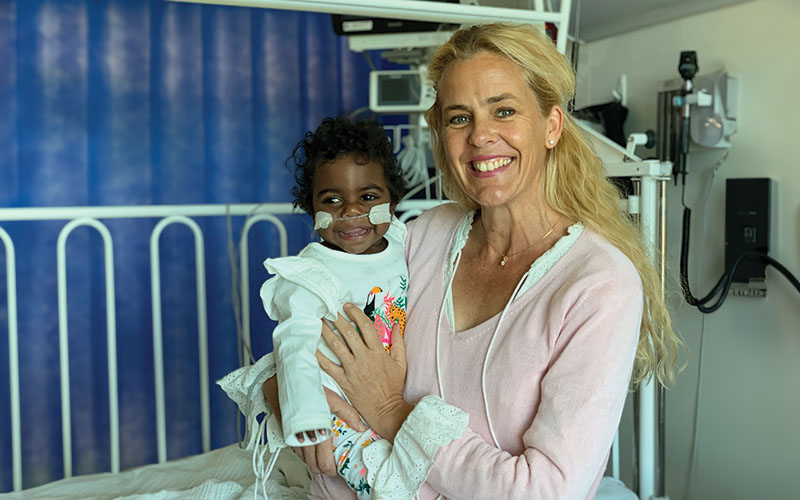Search
Research
Pneumococcal Conjugate Vaccines Are Protective Against Respiratory Syncytial Virus Hospitalizations in Infants: A Population-Based Observational StudyPneumococcal conjugate vaccines (PCV) reduced the risk of respiratory syncytial virus (RSV) in a randomized clinical trial. We aimed to assess the real-world effectiveness of PCV on RSV-hospitalizations among Western Australian infants.

Culturally secure intervention to facilitate medical follow up for Aboriginal children, after being hospitalised with chest infections, have proven to improve long-term lung health outcomes.
Research
Complete genome sequence of Burkholderia cenocepacia bacteriophage Karil-mokiny-1Burkholderia cepacia complex causes life-threatening respiratory infections. Here, a bacteriophage with activity against B. cenocepacia was isolated from wastewater. It has a genome size of 70,144 bp and has the taxonomic classification Irusalimvirus. It has no genes associated with lysogeny, bacterial resistance, or virulence.
Research
Immune Development in Early Life (IDEaL) longitudinal cohort study protocol: Identifying biomarkers of vaccine responsiveness, respiratory infection, and asthmaEarly-life immune development is a critical factor in predicting the risk of childhood respiratory infections, asthma, and poor vaccine responses. Identifying immune endotypes that predispose children to these conditions could lead to the development of predictive biomarkers and early interventions, potentially improving long-term health outcomes.
Research
“We've wanted to vaccinate against it and now we can”: views of respiratory syncytial virus disease and immunisation held by caregivers of Aboriginal children in Perth, Western AustraliaRespiratory syncytial virus (RSV) is a major cause of respiratory infection with a higher burden in Aboriginal and Torres Strait Islander infants and children. We conducted a pilot qualitative study identifying disease knowledge and willingness to immunise following the changing immunisation landscape for infant RSV in 2024.
Research
Validity of using a semi-automated screening tool in a systematic review assessing non-specific effects of respiratory vaccinesThe abstract screening process of systematic reviews can take thousands of hours by two researchers. We aim to determine the reliability and validity of Research Screener, a semi-automated abstract screening tool within a systematic review on non-specific and broader effects of respiratory vaccines on acute lower respiratory infection hospitalisations and antimicrobial prescribing patterns in young children.
Research
Implementation of a strategy to facilitate effective medical follow-up for Australian First Nations children hospitalised with lower respiratory tract infections: study protocolFirst Nations children hospitalised with acute lower respiratory infections (ALRIs) are at increased risk of future bronchiectasis (up to 15-19%) within 24-months post-hospitalisation. An identified predictive factor is persistent wet cough a month after hospitalisation and this is likely related to protracted bacterial bronchitis which can progress to bronchiectasis, if untreated.
Research
Examining the interseasonal resurgence of respiratory syncytial virus in Western AustraliaFollowing a relative absence in winter 2020, a large resurgence of respiratory syncytial virus (RSV) detections occurred during the 2020/2021 summer in Western Australia. This seasonal shift was linked to SARS-CoV-2 public health measures. We examine the epidemiology and RSV testing of respiratory-coded admissions, and compare clinical phenotype of RSV-positive admissions between 2019 and 2020.
Research
Off-season RSV epidemics in Australia after easing of COVID-19 restrictionsHuman respiratory syncytial virus (RSV) is an important cause of acute respiratory infection with the most severe disease in the young and elderly. Non-pharmaceutical interventions and travel restrictions for controlling COVID-19 have impacted the circulation of most respiratory viruses including RSV globally, particularly in Australia, where during 2020 the normal winter epidemics were notably absent.
Research
Unusual 2020 respiratory syncytial virus bronchiolitis season in Western Australia: Not explained by weatherTo describe and explore the relationship between weather and the unusual 2020 bronchiolitis season in Western Australia during the COVID-19 pandemic.
